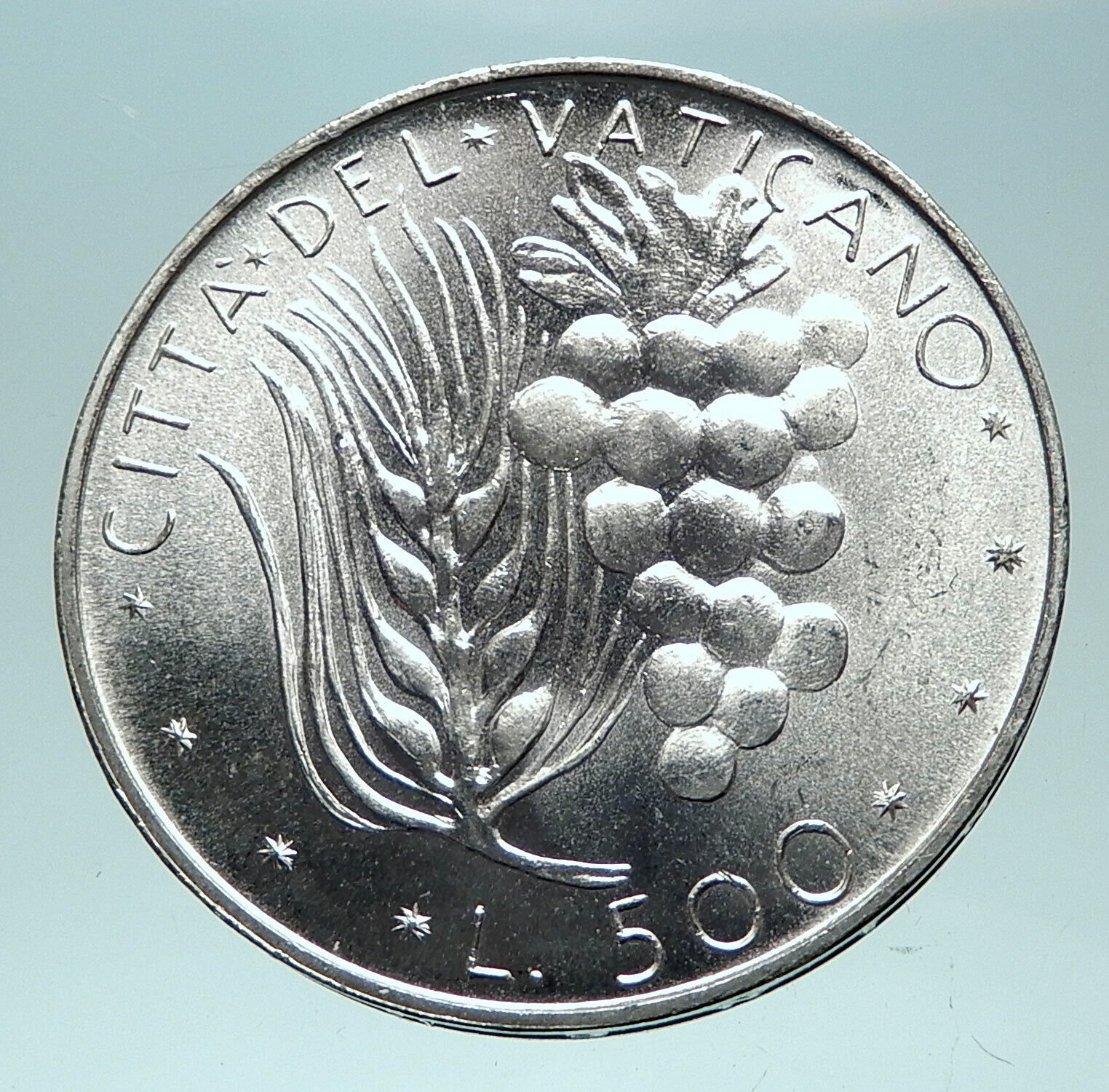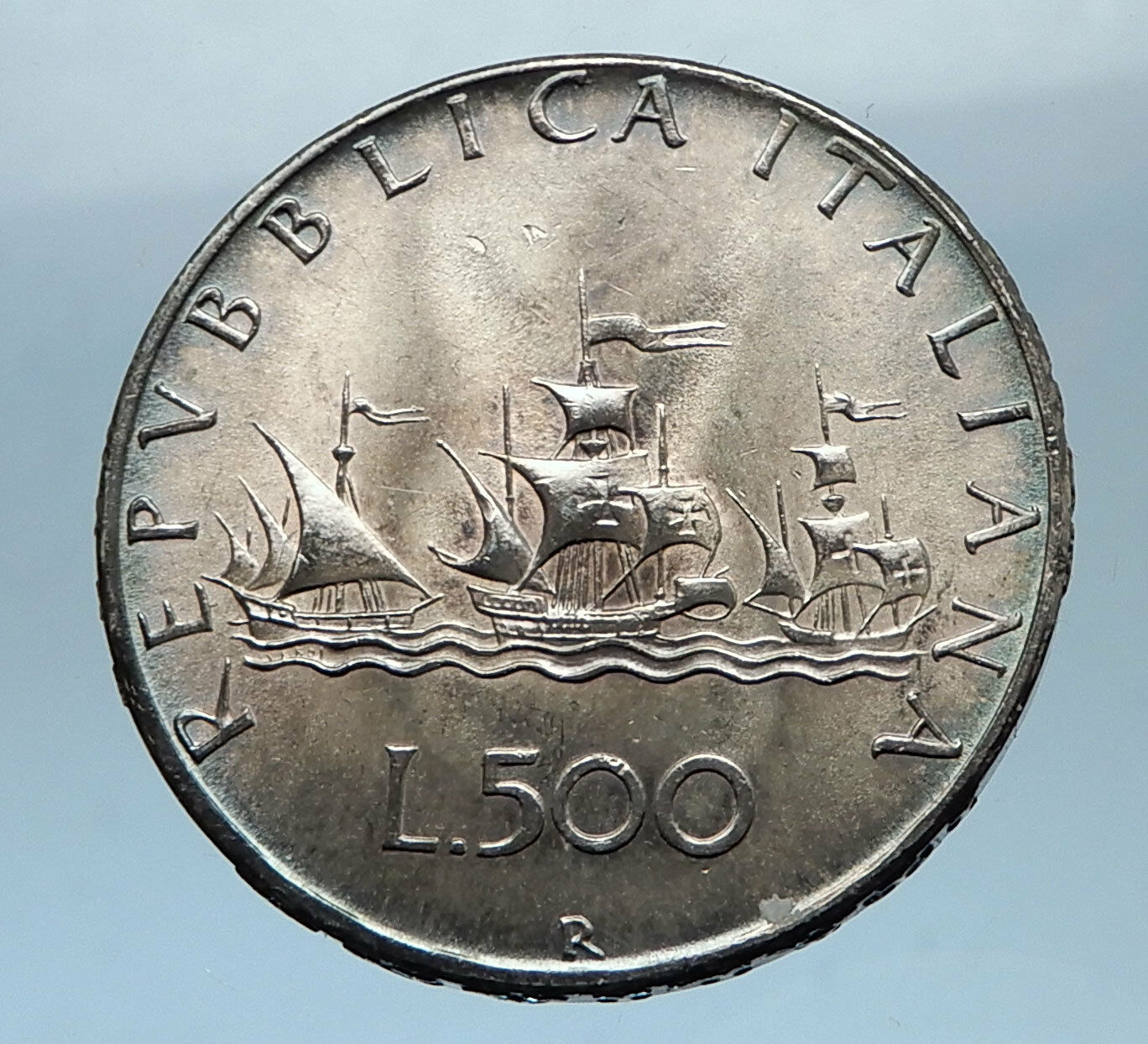|
Italy – Umberto I King: January 9, 1878 – July 29, 1900
1893 KB Copper 10 Centesimi 28mm (9.83 grams)
Reference: KM# 27 (1894-95) | Engraver: Filippo Speranza
UMBERTO I RE D’ITALIA SPERANZA, Head of King Umberto I facing left.
10 CENTESIMI 1893 BI, Value and date within two branches, one of laurel and the other of oak and the Star of Italy.
You are bidding on the exact item pictured, provided with a Certificate of Authenticity and Lifetime Guarantee of Authenticity.
.svg/100px-Lesser_coat_of_arms_of_the_Kingdom_of_Italy_(1890).svg.png)
 Umberto I (Italian: Umberto Ranieri Carlo Emanuele Giovanni Maria Ferdinando Eugenio di Savoia; 14 March 1844 – 29 July 1900), nicknamed the Good (Italian: il Buono), was the King of Italy from 9 January 1878 until his assassination on 29 July 1900. Umberto I (Italian: Umberto Ranieri Carlo Emanuele Giovanni Maria Ferdinando Eugenio di Savoia; 14 March 1844 – 29 July 1900), nicknamed the Good (Italian: il Buono), was the King of Italy from 9 January 1878 until his assassination on 29 July 1900.
Umberto’s reign saw Italy attempt colonial expansion into the Horn of Africa, successfully gaining Eritrea and Somalia despite being defeated by Abyssinia at the Battle of Adowa in 1896. In 1882, he approved the Triple Alliance with the German Empire and Austria-Hungary.
He was deeply loathed in leftist circles because of his conservatism and support of the Bava-Beccaris massacre in Milan. He was especially hated by anarchists, who attempted an assassination on him during the first year of his reign. He was killed by another anarchist, Gaetano Bresci, two years after the Bava-Beccaris massacre.
 ![Location of Italy (dark green)– in Europe (light green & dark grey)– in the European Union (light green) – [Legend]](https://upload.wikimedia.org/wikipedia/commons/thumb/b/ba/EU-Italy.svg/250px-EU-Italy.svg.png) Italy, officially the Italian Republic (Italian: Repubblica Italiana), is a unitary parliamentary republic in Europe. Italy covers an area of 301,338 km2 (116,347 sq mi) and has a largely temperate climatelo Stivale (the Boot). With 61 million inhabitants, it is the 4th most populous EU member state. Located in the heart of the e Mediterranean Sea, Italy shares open land borders with France, Switzerland, Austria, Slovenia, San Marino and Vatican City. Italy, officially the Italian Republic (Italian: Repubblica Italiana), is a unitary parliamentary republic in Europe. Italy covers an area of 301,338 km2 (116,347 sq mi) and has a largely temperate climatelo Stivale (the Boot). With 61 million inhabitants, it is the 4th most populous EU member state. Located in the heart of the e Mediterranean Sea, Italy shares open land borders with France, Switzerland, Austria, Slovenia, San Marino and Vatican City.
 Since ancient times, Greek, Etruscan, Celtic, and other cultures have thrived on the Italian Peninsula. Rome ultimately emerged as the dominant power, conquering much of the ancient worldcentreWestern civilisation. During the Dark Ages, the region suffered sociopolitical collapse amid calamitous barbarian invasions, but by the 11th century, numerous Italian city-states rose to great prosperity through shipping, commerce and banking, and even laid the groundwork for capitalism. The Renaissance led to a flourishing of Italian culture, producing famous scholars, artists, and polymaths such as Leonardo da Vinci, Galileo, Michelangelo and Machiavelli. Italian explorers such as Marco Polo, Christopher Columbus, Amerigo Vespucci, and Giovanni da Verrazzano discovered new routes to the Far Eastst and the New World, helping to usher in the European Age of Discovery. Nevertheless, Italy remained politically fragmented and fell prey to European powers such as France, Spain, and later Austria, subsequently entering a long period of decline that lasted until the mid-19th century. Since ancient times, Greek, Etruscan, Celtic, and other cultures have thrived on the Italian Peninsula. Rome ultimately emerged as the dominant power, conquering much of the ancient worldcentreWestern civilisation. During the Dark Ages, the region suffered sociopolitical collapse amid calamitous barbarian invasions, but by the 11th century, numerous Italian city-states rose to great prosperity through shipping, commerce and banking, and even laid the groundwork for capitalism. The Renaissance led to a flourishing of Italian culture, producing famous scholars, artists, and polymaths such as Leonardo da Vinci, Galileo, Michelangelo and Machiavelli. Italian explorers such as Marco Polo, Christopher Columbus, Amerigo Vespucci, and Giovanni da Verrazzano discovered new routes to the Far Eastst and the New World, helping to usher in the European Age of Discovery. Nevertheless, Italy remained politically fragmented and fell prey to European powers such as France, Spain, and later Austria, subsequently entering a long period of decline that lasted until the mid-19th century.
After various unsuccessful attempts, the second and the third wars for Italian independence resulted in the eventual unification of most of present-day Italy by 1866. From the late 19th century to the early 20th century, the new Kingdom of Italycolonial empire, becoming a great power. However, southern and rural areas of the country remained largely excluded from industrialisation, fuelling a large and influential diaspora. Despite being one of the main victorsrs in World War II, Italy entered a period of economic crisis and social turmoil, leading the way to the rise of a Fascist dictatorship in 1922. The subsequent participation in World War II on the Axis side ended in military defeat, economic destruction and civil war. In the years that followed, Italy abolished the monarchy, reinstated democracy, and enjoyed a prolonged economic boom, thus becoming one of the world’s most developed nations.
<font color="#000000" italy="" has="" the="" third="" largest="" economy="" in="" Eurozone and the eighth largest economy in the world. It has a very high level of human development and enjoys the highest life expectancy in the EU. Italy plays a prominent role in global military, cultural and diplomatic affairs and is also considered to be a major regional power in Europe. Italy is a founding and leading member of the European Union and the member of numerous international institutions, including the UN, NATO, the OECD, the OSCE, the WTO, the G77/G8, G20, the Union for the Mediterranean, the Council of Europe, Uniting for Consensus, and many more. As a reflection of its vast cultural wealth, Italy is home to 51 World Heritage Sites, the most in the world, and is one of the most visited countries.
|





.svg/100px-Lesser_coat_of_arms_of_the_Kingdom_of_Italy_(1890).svg.png)
 Umberto I (Italian: Umberto Ranieri Carlo Emanuele Giovanni Maria Ferdinando Eugenio di Savoia; 14 March 1844 – 29 July 1900), nicknamed the Good (Italian: il Buono), was the King of Italy from 9 January 1878 until his assassination on 29 July 1900.
Umberto I (Italian: Umberto Ranieri Carlo Emanuele Giovanni Maria Ferdinando Eugenio di Savoia; 14 March 1844 – 29 July 1900), nicknamed the Good (Italian: il Buono), was the King of Italy from 9 January 1878 until his assassination on 29 July 1900.
![Location of Italy (dark green)– in Europe (light green & dark grey)– in the European Union (light green) – [Legend]](https://upload.wikimedia.org/wikipedia/commons/thumb/b/ba/EU-Italy.svg/250px-EU-Italy.svg.png) Italy, officially the Italian Republic (Italian:
Italy, officially the Italian Republic (Italian:  Since ancient times, Greek, Etruscan, Celtic, and other cultures have thrived on the Italian Peninsula. Rome ultimately emerged as the dominant power, conquering much of the ancient worldcentreWestern civilisation. During the Dark Ages, the region suffered sociopolitical collapse amid calamitous barbarian invasions, but by the 11th century, numerous Italian city-states rose to great prosperity through shipping, commerce and banking, and even laid the groundwork for capitalism. The Renaissance led to a flourishing of Italian culture, producing famous scholars, artists, and polymaths such as Leonardo da Vinci, Galileo, Michelangelo and Machiavelli. Italian explorers such as Marco Polo, Christopher Columbus, Amerigo Vespucci, and Giovanni da Verrazzano discovered new routes to the Far Eastst and the New World, helping to usher in the European Age of Discovery. Nevertheless, Italy remained politically fragmented and fell prey to European powers such as France, Spain, and later Austria, subsequently entering a long period of decline that lasted until the mid-19th century.
Since ancient times, Greek, Etruscan, Celtic, and other cultures have thrived on the Italian Peninsula. Rome ultimately emerged as the dominant power, conquering much of the ancient worldcentreWestern civilisation. During the Dark Ages, the region suffered sociopolitical collapse amid calamitous barbarian invasions, but by the 11th century, numerous Italian city-states rose to great prosperity through shipping, commerce and banking, and even laid the groundwork for capitalism. The Renaissance led to a flourishing of Italian culture, producing famous scholars, artists, and polymaths such as Leonardo da Vinci, Galileo, Michelangelo and Machiavelli. Italian explorers such as Marco Polo, Christopher Columbus, Amerigo Vespucci, and Giovanni da Verrazzano discovered new routes to the Far Eastst and the New World, helping to usher in the European Age of Discovery. Nevertheless, Italy remained politically fragmented and fell prey to European powers such as France, Spain, and later Austria, subsequently entering a long period of decline that lasted until the mid-19th century.




